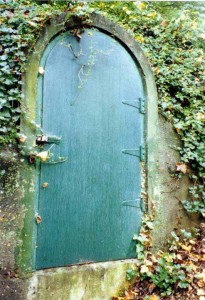June 30, 2012 — My sister posted a large photo on her Facebook page the other day with a note to her husband stating, “I finally found a picture of myself the last time I vacuumed.” There she is, standing in front of the Christmas tree, hand resting on the handle of a small upright vacuum. She was about four years old.
This incident confirms absolutely that we are sisters. Besides being writers and looking alike, although she is 22 years younger and we have different mothers, we share many common traits.
June 26 happens to be my sister’s birthday. My Granddaddy, our father’s father, had four sisters; and they were all crazy. There are just two of us and we are completely sane; trust me on this. And until that day last week, there were four Ephron sisters. June 26 is the day writer/journalist Nora Ephron died (movies: When Harry Met Sally, Sleepless in Seattle, You’ve Got Mail, Julie & Julia; books: I Remember Nothing, I Feel Bad About My Neck; and much more). She bought her freedom from this earthly realm. But for me her death is a loss and a shock. I didn’t know she was ill. She carried her illness with dignity. Recently, she wrote about the urgency of pursuing our dreams, cautioning that we never know how much time we’ve got left. I hear her. She was just my age. Too young. Scary. I regarded her as a generational and writing compatriot: at least we could become relics together, and find the humor in it. Therein, reading her take on the condition, I would find support. She was a screenwriter and essayist of the highest caliber.
When I sat down to write this, I had just gotten done resetting all 30 digital clocks around the house after our storm last night. It seems like 30 clocks, anyhow – plus the VCR (always mystifying until I wrote and taped instructions to the back of its remote) and the digital answering machine (a greater conundrum than the VCR). I hate hearing that little man answer when I call people; I never know if I’ve gotten the right number; so I don’t know what kind of message to leave, whether to give intimate details or be so superficial that my recipient, even though we’re close, hasn’t the foggiest notion what issue I am trying to get across. Making a new announcement is user friendly; setting the date and time is the enemy.
Speaking of little men and film, I watched the movie Albert Nobbs two nights ago. It was excellent: an extraordinarily well-crafted plot, and Glenn Close’s performance rivals that of Meryl Streep’s in Iron Lady.
At the height of the storm, I watched on TV the Charlie Rose remembrance of Nora Ephron while lightning flashed, high winds shook this old, wooden house, large things blew around outside, the tall loblolly pine near my window swayed wildly towards the house, and the fire siren (on the next street) went off. Then the power went off. So, once again, Nora Ephron’s existence was cut short. I will watch the conversation online at charlierose.com. What I saw of the show was heartwarming, though: Nora Ephron makes me feel good. She has a wonderful way of finding the humor in a difficult situation; she said her late mother, as screenwriter (Take Her, She’s Mine, modeled on Nora at Wellesley College), said “Everything is copy.” I heartily agree. Therefore, I promise I probably won’t use your real name in my story.
From the storm, here in our neighborhood we received no damage, amazingly. And the town restored our power after an hour. There for a spell, though, we rode the rapids.
You have to ride the rapids at times. I have. You can’t live life in a vacuum. Life is short. Go for it. Go for your dreams. I have to repeat this to myself, like a mantra. Twenty-five years ago reside just around the corner, as close as our local library; yet 25 years hence I will be two-years short of Emma’s age when she died. That age is just up the block, over the next hummock.
Relative to writers, journalists, and riding the rapids, exists crossing rivers in high storms and dense fog to miraculously survive this life or to win a battle for independence. Our American July Fourth celebration is upon us. The older I get, the closer 1776 appears, just around the last bend, just across our nearby Delaware River into New Jersey. I have lived nearly one-third of the 236 years between 1776, the year we declared our independence from Great Britain, and today. The patriots won, and thus far we maintain, our freedom of speech. “The price of freedom is eternal vigilance.” Thomas Jefferson said. I am proud to be a working member of the fourth estate. From me, George Washington – oops, no, no, I don’t have delusions of grandeur – from our illustrious leader George Washington, who sometimes rode a white mule, and Thomas Jefferson, who lent me his “Head and Heart” love letter for my Chapter XXIX “The Overture,” freely enjoy a safe and sane Independence Day! Remember: vacuum after the party.
—Samantha Mozart









